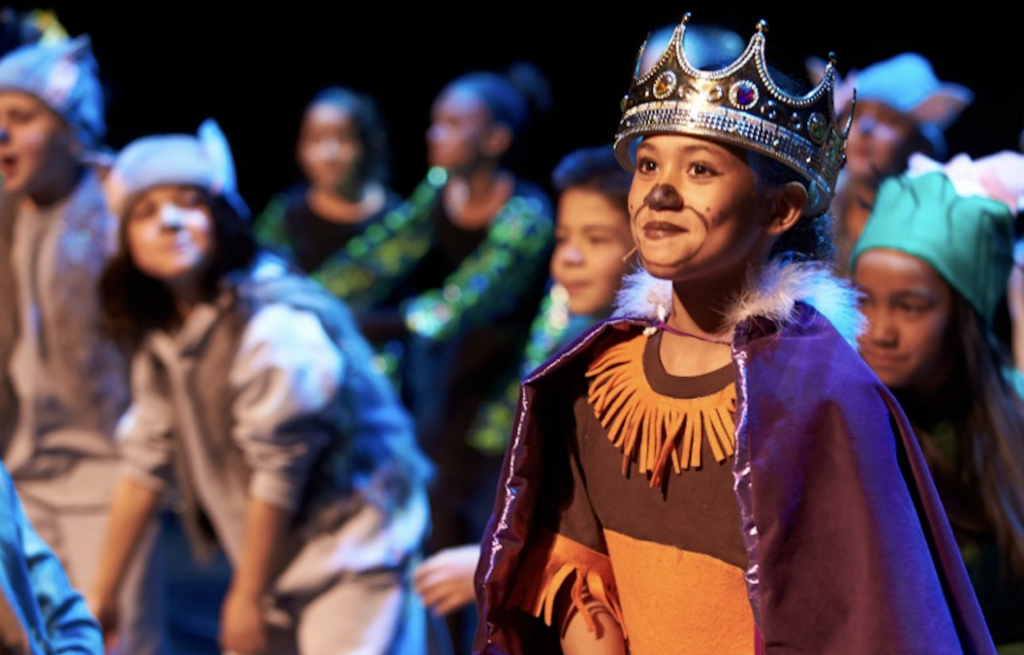KC Rep’s Broke-ology is a graduate course in chemistry, not finance
Late playwright Nathan Louis Jackson's KC-based play serves as staging ground for a stellar cast but falters in its own themes.
Getting a “slice of life” story to work is incredibly difficult, and that’s true everywhere, from stage to page to screen. If you’re going to forego a plot-driven narrative and instead get a message across via tone and hinting at what the characters are ‘talking around’, there’s a great deal of trust a creative team must have in its players. KC Rep’s production, currently running at Copaken Stage, assigns actors to a set of scenes where their interpersonal chemistry easily carries the show—whether this is enough to make a show successful requires a twisty interpretation of its base materials.
Playwright Nathan Louis Jackson’s Broke-ology is a warm and inviting extrapolation of a Black working-class family’s life in a Kansas City neighborhood. Set in their well-lived home, the King patriarch’s two adult sons have come together for quality time at a crossroads in their individual journies, only to discover that their father’s greatly diminished capacities are cause for concern—and some form of permanent solution.
“Broke-ology,” as described by Ennis (Robert E. Coppage III), should be the class he teaches on how to navigate a world where everything has become irrationally expensive and tolls that no amount of bootstrap-pulling work can hope to overcome. He believes that his mastery of living through the cracks in the system will allow him to keep working a job as a fast food cook, while also providing for his partner and their forthcoming child. The idea of having a curriculum to impart professionally to students comes as a bit of competition with his younger brother, Malcolm (Raffeal Sears), who has gone off to college in another state and has laid the foundations of an unrecognizable existence.
Malcolm has risen in the ranks of academia to the point of being offered an impressive position at a college in Connecticut. The money and stability of this new station in life would break the family streak of poverty-adjacent survival but would come at the cost of a thousand-mile separation—saddling his over-encumbered brother with the additional responsibility of caretaker for their father.
William King (Melvin Abston), who experiences flashbacks and vague hallucinations of his deceased wife (Teonna Wesley), has become riddled with a series of degenerative disorders. Through struggle, he can still maintain most of an independent existence, even if his transit up and down the home’s central staircase becomes increasingly perilous. His mental acuity backslides in stride with his physical health, as remembering to take medication is often forgotten and emergency issues are covered up or explained away—as with an eye that he covers with a pirate-style patch instead of bringing to a doctor.
A father’s stubborn pride in the waning years of a life well-fought serves as the backdrop to two sons whose paths forward are equally beset by pros and cons that leave them feeling reset to a net zero. How can they hope to progress as the weight of their familial needs becomes a heavier burden than ever, and how can they find acceptance in each other when discussing the hard things that are easily avoidable by focusing on other distractions that help run out the clock?
Broke-ology thrives on the strength of its four-person cast. The family home where we set our stage—and minimal but cleverly stylized lighting and sound design—is second nature to the players, who flow and stumble in equal measure across a space they’ve seemingly known for decades. Each aside or newfound confrontation fluidly merges with well-worn ground and instinctual rhythms. The movements come off so unrehearsed amid the power-dynamic shifts that it draws the audience in by expertly removing the fourth wall. It is both expressly an important dividing line in the lives of these characters, but equally any other weekend in a Kansas City summer, where barking dogs and the constant faint presence of police sirens remind us that a form of this frustrating exercise in modern living is playing out in dozens of other homes on the same block.
This throughline is part of what the show sells itself on—a universal idea of struggle, especially financial, in an age where our structural systems of support are dropping by the wayside, just as American need is outpacing itself towards new summits. Broke-ology wants to be a show about the price of eggs and baby Bjorns colliding against the swift removal of healthcare and human dignity. As explored in our reporter Kat Alfieri’s preview of the show, these are the themes meant to stir recognition and familiar discontent in its delivery—but this feels pretty far from that advertising.
Jackson’s script takes its time and eschews traditional pacing and structure to give the family plenty of time to linger in the small, silent moments. It makes for a production that feels too long, especially with a first half that never quite knows when to break for intermission and just keeps a hobbled pace forward. When viewing Broke-ology as more of a journey than a destination—one that has little interest in wrapping up narrative threads—the quiet desperation of a blood-bound set of unremarkable heroes makes more sense, and indeed the talented cast is further depended upon to carry this weight. But Broke-ology mostly pays passing reference to its own titular theme.
This isn’t a show about eggs and baby Bjorns, nor is it even about solving the problems around an elderly parent. If it were, these would be problems that required solutions. In their place, we are given a series of moments—days and scenes that allow for general disillusionment but are quickly sidelined by sudden tonal shifts.
Moments of sublime existential longing are upended by pivots that jarringly seem jammed in from an entirely different show. A late-night drunken adventure between brothers (involving a stolen garden gnome and Tolkien-esque fantasy voices) injects a jolt of joy amid one of many introspective lulls, but it doesn’t make much sense—especially when Ennis and Malcolm establish early in the performance that part of their natural discourse can slide easily into stand-up adjacent banter.
Elsewhere, a transphobic joke from a character that would seem least likely to utter such trash brings the entire show to a brief spiritual halt. For whatever else this play decided to dabble with in linguistic lowbrow, days later I am still sincerely confused as to how this detail remains in the production. It isn’t just clunky; it is unnaturally derailing, but perhaps worst of all, utterly unmotivated.
The details here all sort of accumulate into one singular criticism, which is that Broke-ology doesn’t know what it wants to be, or more accurately, it lacks the awareness of where its own excellence lives. This is not a course in Broke-ology—as the thesis statement is mentioned as quickly as it is dropped—but rather a graduate-level lab in Chemistry. The costs of living alluded to as frustrations, like a changing table for the inbound child, are purchases that all get made. Who pays for it and how doesn’t it really figure in? The cost of an assisted living facility is touted as unreasonable, but the actual contention is whether this is an acceptable decision for the family—one that the father seems to have little resistance against.
Broke-ology either intentionally or unintentionally does a fake-out by stating exactly what it is there to explore and then opts to be a quiet slice-of-life drama that’s remarkably human—and that’s fine. We can celebrate the parts of it that work, and the rest will remain a warm meander that achieves its goals, albeit on a looser set of terms. While tonally inconsistent, the performances and production itself are top-tier, a wonderfully dedicated tribute to its scribe, and breaking its performances out into parts of the community that don’t regularly make a trip to the H&R Block Building. Broke-ology as a show elevates what Broke-ology on the page seems to circle, without sticking its landing.
Directed by Francois Battiste and starring Robert Coppage III, Raffeal Sears, Melvin Abston, and Teonna Wesley, Broke-ology performances run until March 2, 2025 and tickets are available here.







